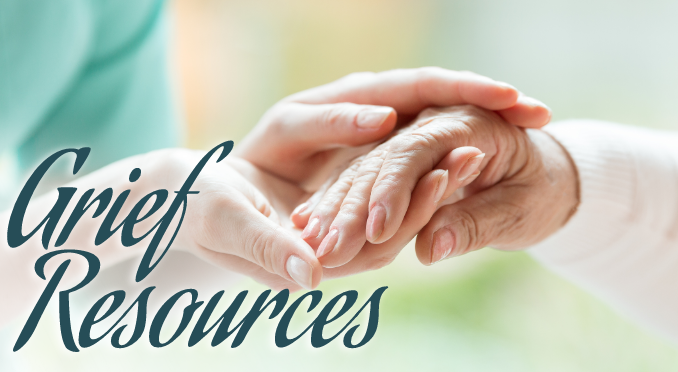Eulogies & Obituaries
Giving a meaningful eulogy, or writing an obituary, can be a nerve-wracking situation for even the most accomplished public speaker. We have gathered some resources to help you along the way.
Eulogies
Giving a meaningful, moving eulogy can be a nerve-wracking situation for even the most accomplished public speaker, but it doesn't have to be. How can you summarize somebody’s life in a few short minutes, while being both somber and funny at the same time? Writing and delivering a eulogy is a therapeutic tool to help deal with your grief, and being chosen to give a eulogy is an honor and should be treated that way. Here are some tips for writing and delivering an eloquent and memorable eulogy.
- Gather information. Talk with family members, close friends and co-workers to get important information on the deceased. Some important information to include in the eulogy is the person's family and other close relationships, their education/career, hobbies or special interests, places the person lived or traveled too, and any special accomplishments they had.
- Organize your thoughts. Jot down your ideas by whatever means are most comfortable and familiar to you. Create an outline of your speech, and fill in the information that you gathered about the person.
- Write it down. This is not a toast at a wedding where you can make off the cuff remarks, and you should not ad lib a eulogy. Writing it all down allows you to include and remember every detail you wanted in your eulogy. When you bring a copy of your eulogy to the podium, make sure it is easy to read. Print it out in a large font or, if it is hand-written, leave a few spaces between the lines. Keep in mind the length of your eulogy; it’s best to keep things on the short side, especially if there are other speakers.
- Review and Revise. Your first draft will not be your last. When you think you are done, sleep on it, and look it over in the morning when your mind is fresh again. That will be the time to make any necessary revisions.
- Practice, Practice, Practice. Read over your eulogy several times in order to become familiar with it. Practice in front of a mirror, read it to your friends or family, and have them give you feedback. Become familiar with your speech so you can recite it without making it look like you’re reading from a script. The more you practice you have, the more comfortable you will be.
- Make them laugh, but be respectful. A funeral is not a roast, however there is room for humor in your eulogy. Fondly remember a story about the person that everyone can relate too. Keep it appropriate, as there will be children and the elderly there that may not share the same sense of humor. Laughter is truly the best medicine, and some well placed humor will help people cope, and will bring back fond memories of the deceased.
- Don’t be afraid to show emotion. Funerals are an extremely emotional event. Nobody expects you not to shed a few tears. However, if you feel that you will be too strongly overcome by your emotions, have a back-up plan in place to have someone you trust deliver the eulogy for you. Give them a copy well in advance if you feel this may be the case.
- Have a glass of water as well as tissues handy.
Obituaries
Writing an obituary is a difficult and emotional task. First, you will need to gather information from family and friends of the deceased about their childhood, education, career, hobbies and interests. As well, speak to the funeral home to receive any important information on the date, time and location of any funeral service, or other funeral related events. Using the template below will help make the process easier, and will ensure that you write a properly structured obituary.
Instructions: Replace all items in ITALICS below with the appropriate information.
[GIVEN NAME] [MIDDLE NAME (AND NICKNAME)] [SURNAME NAME], [AGE], of [CITY], [PROVINCE], passed away on [DATE OF DEATH], in [LOCATION OF DEATH].
[NAME] is survived by his/her [RELATION], [NAME] of [CITY]. (List all survivors: spouse, children, siblings, parents, grandchildren, great-grandchildren, nieces and nephews).
He/she is predeceased by his/her [RELATION], [NAME]. (List predeceased: spouse, parents, children and siblings.)
[NAME] was born in [LOCATION OF BIRTH] to [PARENTS' NAMES] on [DATE OF BIRTH]. He/she went to high school at [SCHOOL NAME] and graduated in [YEAR]. He/she went on to earn a degree/certificate in [DEGREE TYPE] from [SCHOOL NAME]. He/she worked as a [JOB TYPE] for [COMPANY] for [NUMBER OF YEARS]. He/she enjoyed [ACTIVITIES/HOBBIES]. He/she received [AWARDS/HONORS] and was involved in [CHARITIES/ORGANIZATIONS].
Viewing will take place on [DATE], at [TIME] at [LOCATION] .
Funeral service will be held on [DATE], at [TIME] at [LOCATION]. Burial will follow at [CEMETERY NAME], [CEMETERY LOCATION]. [NAME OF FUNERAL HOME] will be handling the funeral arrangements.
Memorial donations may be made to [ORGANIZATION NAME], [MAILING ADDRESS]. The family wishes to extend their gratitude to [ORGANIZATION/NAME] [FINAL WORDS].
Remember most newspapers charge by the word. This template is good for getting all of the information necessary included in as few words possible. However, this template is not written in stone. You can make any adjustments you may feel necessary.





